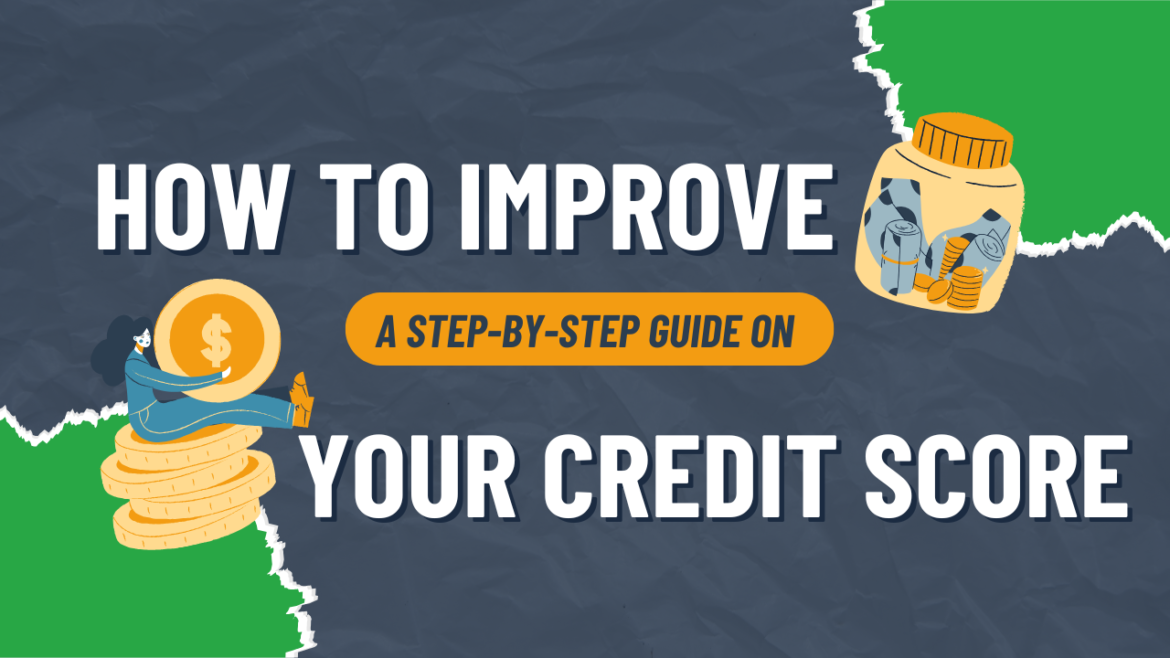Introduction
Your credit score is one of the most important numbers in your financial life. Whether you’re applying for a loan, renting an apartment, or even job hunting, a good credit score can open doors. If your score isn’t where you want it to be, don’t worry—it’s never too late to improve. In this guide, we’ll explore actionable steps to boost your credit score and build a strong financial future.
1. Why is Your Credit Score Important?
Your credit score represents your creditworthiness and impacts:
- Loan Approvals: Higher scores make it easier to qualify for loans and credit cards.
- Interest Rates: Better scores mean lower interest rates, saving you money.
- Opportunities: Some landlords, employers, and insurers check credit scores before making decisions.
2. What Affects Your Credit Score?
Understanding the factors that influence your score is key to improving it:
- Payment History (35%)
- Late payments or defaults harm your score.
- On-time payments build trust with lenders.
- Credit Utilization (30%)
- This measures how much of your credit limit you’re using. Aim for a utilization rate below 30%.
- Credit History Length (15%)
- Older accounts positively impact your score.
- Credit Mix (10%)
- A variety of credit types, like credit cards and loans, shows you can manage different forms of debt.
- New Credit (10%)
- Applying for too much credit in a short time can lower your score.
3. Steps to Improve Your Credit Score
Step 1: Check Your Credit Report
Review your credit report for free at AnnualCreditReport.com. Look for errors like incorrect balances or accounts you don’t recognize, and dispute them immediately.
Step 2: Pay Bills on Time
Set up automatic payments or reminders to ensure you never miss a due date. Payment history is the most significant factor in your credit score.
Step 3: Lower Your Credit Utilization
Keep your credit card balances below 30% of your credit limit. For example:
- Credit limit: $10,000
- Ideal balance: Below $3,000
Step 4: Don’t Close Old Accounts
Even if you don’t use an old credit card, keeping it open can help maintain your credit history length.
Step 5: Limit New Credit Applications
Only apply for credit when necessary. Too many hard inquiries can lower your score.
Step 6: Pay Down Existing Debt
Use strategies like the Debt Avalanche or Debt Snowball methods to reduce balances. Learn more in our Paying Off Debt Guide.
4. Tools to Monitor and Improve Your Credit
Here are some helpful resources to manage your credit:
- Credit Monitoring Apps: Tools like Credit Karma or Experian provide real-time updates and tips.
- Secured Credit Cards: For those with no or poor credit, these cards can help build a positive payment history.
- Debt Management Plans: Nonprofit organizations can assist with consolidating payments.
5. Common Mistakes to Avoid
- Making Minimum Payments Only: Pay more than the minimum to reduce debt faster.
- Closing Accounts: Closing old accounts can shorten your credit history and increase your utilization rate.
- Ignoring Your Credit Report: Errors on your report can harm your score without you realizing it.
6. How Long Does It Take to See Results?
Improving your credit score takes time. Minor changes can show results in a few months, but significant improvements often take six months to a year of consistent effort.
7. Benefits of a Good Credit Score
A strong credit score can:
- Lower borrowing costs.
- Make loan approvals easier.
- Provide access to premium credit cards and better perks.
Conclusion
Improving your credit score is a marathon, not a sprint. By following these steps, staying disciplined, and monitoring your progress, you can boost your credit score and unlock new financial opportunities. Start today—the sooner you act, the closer you’ll be to achieving your goals.
- Your credit report is key to boosting your score. Learn how to interpret it in our Guide to Credit Reports
- Building credit starts with the right tools. Explore the best options in our Credit Card Reviews Guide.
- Your credit report is the foundation of a strong credit score. Learn how to understand it in our Credit Report Guide.
Discover more from Motive Money
Subscribe to get the latest posts sent to your email.
